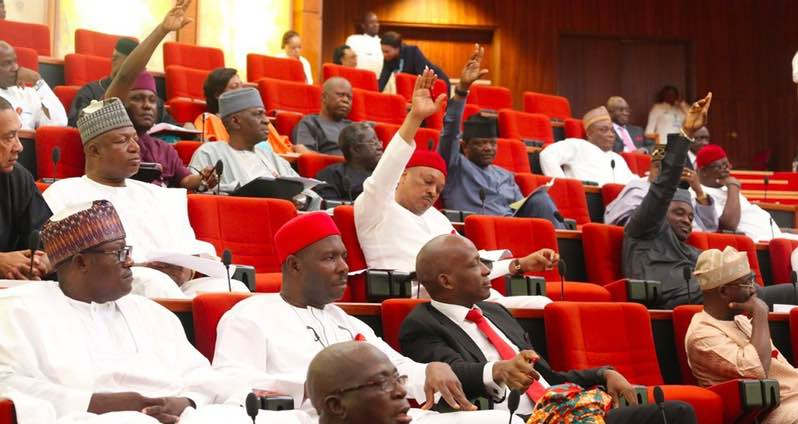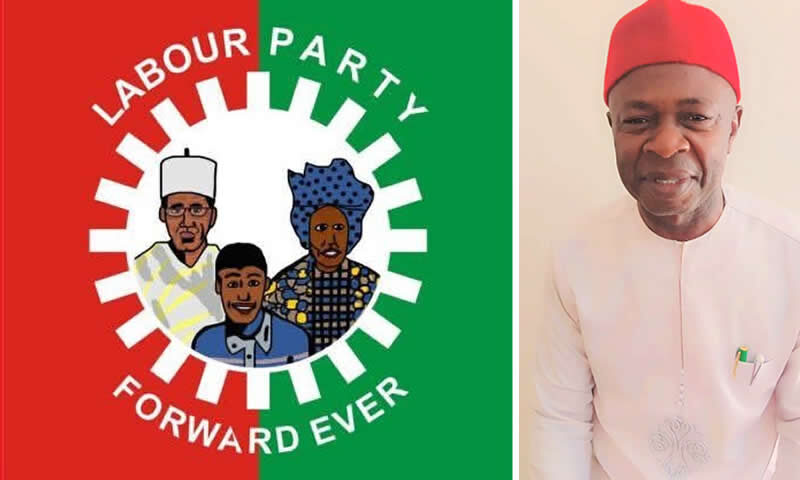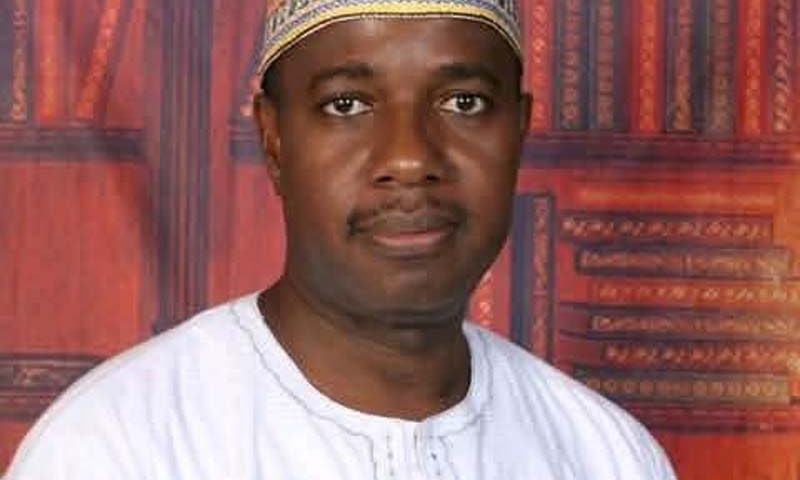“If there is anything the 9th Assembly legislative agenda has failed to do, it is implementing its own set rules and not by merely grandstanding to appear engaged but actually doing nothing for the interest of the nation and its citizenry.”
As the curtain draws on the outgoing 9th senate of the National Assembly, one remarkable memory of the 9th Senate is its launch of the 2019 legislative agenda
The ambitious legislative agenda was explained to be a framework that will guide Senate operations in the next four years.
The Senate had said it is concerned that the country is underdeveloped because of vital sectors that are not viable therefore a committee was set up chaired by Senator Adamu Aliero (Kebbi Central).
The Senator Adamu Aliero committee had presented the report which it was anticipated should guide the 9th Senate in delivering successful bills bothering on the creation of special health centres in the six geopolitical zones, fast-tracking the passage of the Petroleum Industry Bill (PIB), electoral reform, blocking revenue leakages, Open National Assembly Policy and cutting down Federal Government’s agencies,.
Other items featured in the agenda included; security of lives and property, national unity and progress, fight against corruption, eradication of ethnicity and religion, poverty alleviation and controlling the growing menace of out of school children as well as, general development of infrastructure.
How well the 9th Assembly has fared in fulfilling its own agenda remain debatable as over 70% of the items listed in the 2019 Legislative Agenda remains far-fetched with Nigeria ranking 2nd position in the number of out-of-school children in the world and top in Africa, celebrating the infamous position as world poverty capital
Nigeria’s position on the international corruption perception ranked 150th among the 180 countries in the Index as at 2022, which is just about 30 slots away from most corrupt countries in the world, where the public sector is considered as most unreliable and tricky to deal with.
In most instances the leadership of the 9th senate itself has brazenly participated in perpetrating corrupt practices and abuse of the electoral reform which it has listed in the agenda as one of its success stories.
Take for instance the judgment of the Supreme Court in the just concluded 2023 National Assembly elections affirming the Senate President, Dr. Ahmad Lawan, as the All Progressives Congress (APC) senatorial candidate for Yobe North in which he later emerged victorious in an election that he never participated.
The Senate President Ahmed Lawan knows the position of the law especially as provided in Section 115(d) of the Electoral Act, which forbids a person from signing a nomination paper or result form as a candidate in more than one constituency at the same election, yet he went ahead and chose to abuse the constitutional provisions as a Chief lawmaker. How do we justify this in the so called Legislative Agenda, where lawmakers abuse the same process they had set out to achieve as setting agenda for development of the country
The problem of revenue leakages and duplicating of agencies of government for grafts remains insurmountable but not an impossible task to deal with by the lawmakers. Despite increasing spate of oil theft in Nigeria, the celebrated PIA Bill do not appear anywhere near to controlling the loss of petroleum products to thieves whom are in most cases agents of government
The Office of the National Security Adviser (ONSA) delivered a report made public on March 2023, In that report, Special Investigative Panel on Oil Theft/Losses in Nigeria led by Maj Gen Babagana Monguno, observed that crude oil losses arose from a lack of proper reporting of crude oil production, illegal refining, theft from wellheads and diversion from sophisticated pipelines networks. The panel also attributed losses to the absence of a robust industry-wide metering system. This is not a crime of ordinary people in the society but by very connected and coordinated groups of elites in the society.
If there is anything the 9th Assembly legislative agenda has failed to do, it is implementing its own set rules and not by merely grandstanding to appear engaged but actually doing nothing for the interest of the nation and its citizenry.
The Controversies
In most instances their failure to take special consideration on the nature of the Nigerian society that produces them and those they claim to be representing has resulted into various controversies of bills presented on the floor of the red and green chambers.
Take for instance the Social Media Bill, alleged to be one of most controversial bill to have emanated from the Senate. Sponsored by Niger state Senator, Mohammed Musa, It may have appeared ideal to regulate and sanitize the social media platforms but at whose interest, the political elites who continues to feel threatened at the kind of information the internet continue to reveal about their ugly past and negligence or the young Nigerians who has seen an alternative platform of escape to knowledge, skill and global linkages. The Bill was not welcomed by Nigerians because it failed to take into recognition the dynamics of the times we are in. The public do not appear to remain objects of political manipulation at all time and the internet is one sure outlet of an easy backlash if you’re able to gag mainstream media and that is the reality.
The same outright rejection and backlash followed the Boko Haram Rehabilitation Bill. One would imagine, what was the Yobe State Senator Ibrahim Gaidam thinking with the introduction of this bill that will establish an agency of government to integrate avowed insurgents, alleged terrorists and criminals who have vowed to defend their religion as a duty to their god. Was it an act of insensitivity on the side of the senator or was he merely sympathetic to members of his faith who were merely carrying out a religious duty.
Another very controversial bill was the suggestion on ban of importation of generators by Senator Bima Enagi from Niger state.
The introduction of the bill, made Nigerians question the priorities of the Niger state senators as it came weeks after another controversial bill on hate speech and social media bills were presented. The sponsors of both bills are from Niger State.
Importation of generators is a private business of Nigerian citizens paying tax to the government and providing service to the society whom the government has abandoned in a cycle of irregular supply of electricity.
The bill has mandated all persons to stop the use of electricity generating sets which run on diesel/petrol/kerosene of all capacities with immediate effect citing concerns on environmental pollution. The level of criticism that greeted the controversial bill killed it immediately and till date, it remains one of the shockers of the 9th assembly.
Another terrible bill that suffers a backlash and national public outcry was the Water Resources Bill. The National Water Resources Bill, failed to get a concurrent passage by both Houses in the Eighth Assembly and the 9th Assembly. It was reintroduced to the House, passed second reading and was even referred to a House committee.
Many Nigerians, including the Nigeria Labour Congress, could not imagine giving consent to a Bill that made it compulsory for Nigerians to obtain a driller’s permit before sinking a borehole in their homes
There are several other bills proposed by the 9th Senate considered very controversial and unacceptable by the Nigerian citizens including the Infectious Disease Bill sponsored by the Speaker of the House of Representatives, Femi Gbajabiamila, the Peace Corps Bill sponsored by Borno senator, Mr. Ndume which appears as a duplication of duties of existing security agencies.
One of the most controversial was the Company and Allied Matters Act or (CAMA) which seeks to enable individuals to register companies from any part of the world. While it appears a noble idea but Nigerians were very angry about Section 839 which allows the government to appoint trustees over religious bodies and charity organisations. In a country like Nigeria where religion has assumed the role of non-taxable industries, ‘The CAMA Act is alleged by Nigerians to be a diabolic and evil intended Act. Especially where it says that the government can change the board of trustees of the churches and no court can upturn it.
Others include the Hate Speech Bill, similar to the Social Media Bill, Diaspora Voting Bill, the Gender Bills Which were out rightly rejected by the lawmakers and the State Police Bill Which was presented as an alternative to the centralized policing system which suffered a setback at the committee stage
Scorecards of the 9th Assembly
In all, the 9th senate will be applauded for its success in passing into law the 2022 electoral reform which saw the massive turn out of voters in the 2023 general elections and improved the transmission of votes from the polling units to the electoral body. The Petroleum Industry Act (PIA) which was designed to bring transparency into the petroleum industry and the early passing of the budget from its dismal delays running into second or third quarters before it is passed into law. The 9th Senate was able to reset the budget cycle to run from January to December as was the case in the distant past
As the 9th senate took leave of the legislative assembly, the coming 10th Senate are expected to be even more responsive, accountable, and focused on addressing the challenges facing the country and endeavor to complete the items listed in the 9th Legislative Agenda. Nigerians expect the Senate to work towards promoting good governance, economic growth, and the welfare of the citizens.






